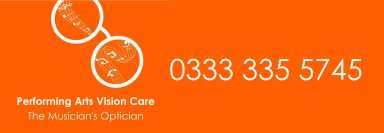BLOG
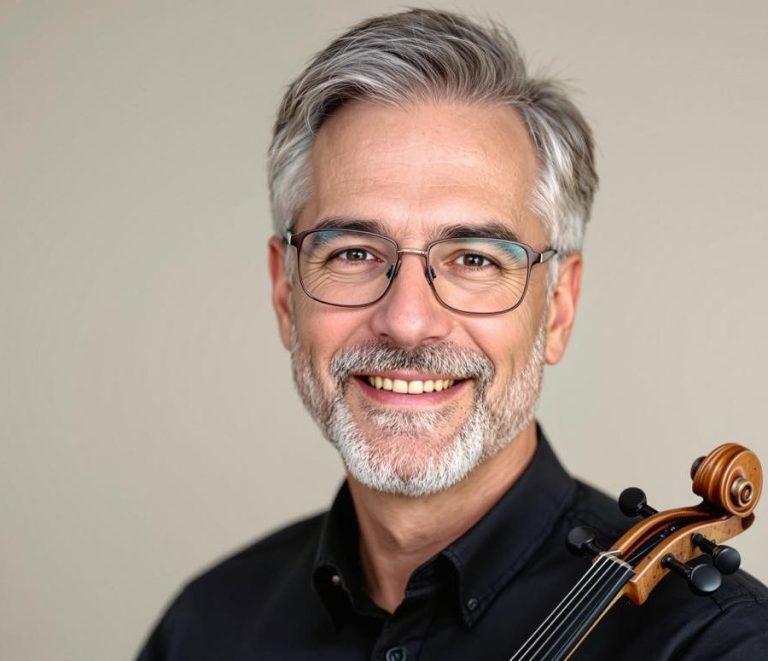
14/06/2025
Seeing Beyond Stigma: A Musician’s Story During Diabetes Week
Coping with Diabetic Retinopathy as a Performer
As we near the end of Diabetes Week, we take a closer look at what happens when a professional musician’s vision—and livelihood—are threatened by diabetic retinopathy, despite years of dedicated self-care. Wayne’s story is one of resilience, stigma, and the life-changing impact of specialist vision support.
Discover how expert care and bespoke solutions helped him reclaim his confidence on stage and in the classroom—without sacrificing his privacy or his passion for music.
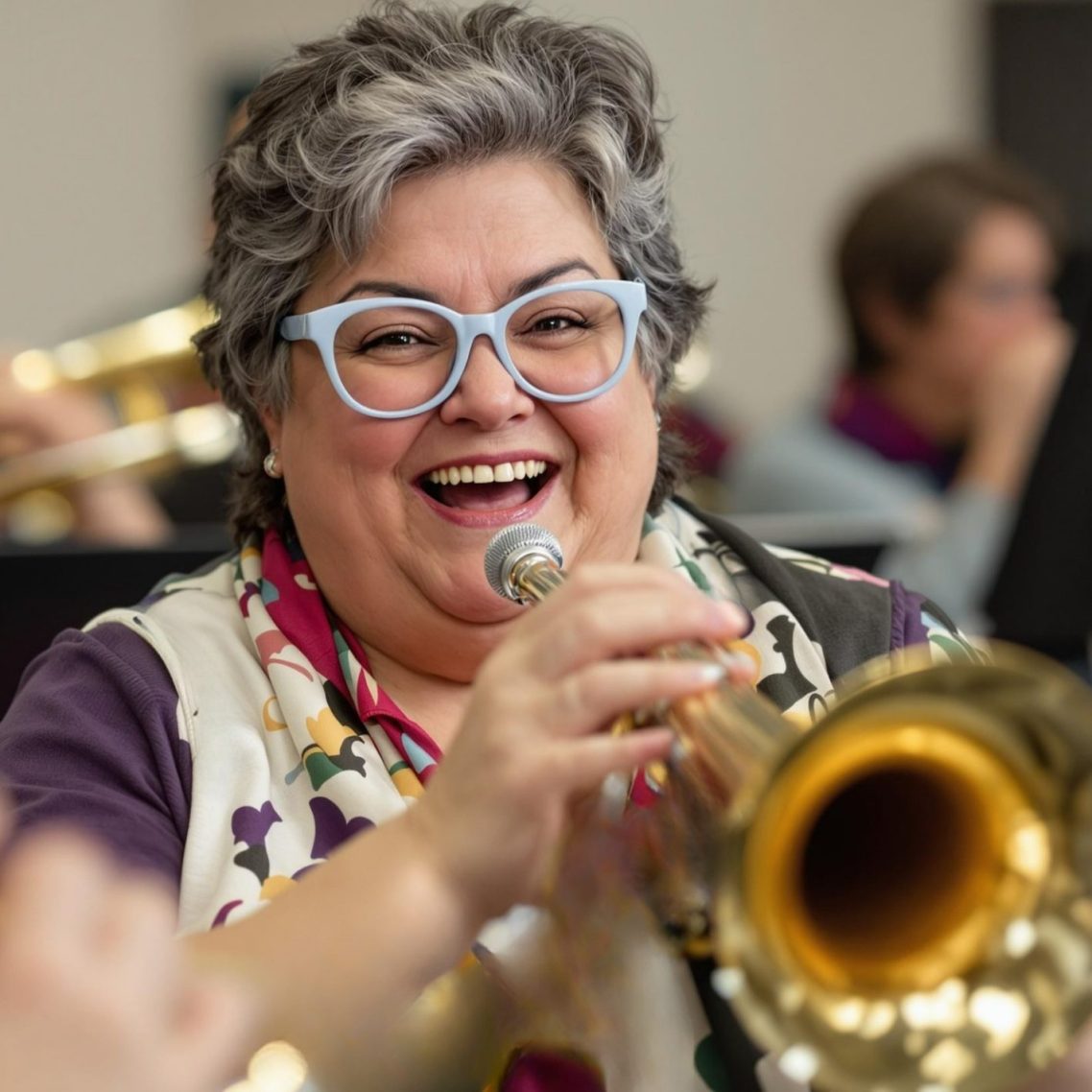
09/06/2025
How Specialist Vision Care Helped a Music Teacher Reclaim Her Passion
This Diabetic Awareness Week, we’re proud to share Diane’s remarkable story. When progressive diabetic retinopathy threatened her career and independence, Diane turned to Performing Arts Vision Care for help. Through advanced assessments and bespoke lenses, Diane was able to return to teaching, performing, and enjoying the music she loves.
Read Diane’s inspiring journey and discover how specialist vision care can make a life-changing difference for performers living with diabetes.
01/06/2025
Diabetes Awareness Week
Raising awareness of this
vision threatening disease
Diabetes Week runs from Monday, June 9th, to Sunday, June 15th, 2025. Throughout June, we'll be diving deep into diabetic retinopathy and how it can impact a performing arts career.
Diabetic retinopathy, which damages retina blood vessels and causes vision loss or blindness, can endanger performers' ability to see clearly. This condition is the leading cause of vision loss among working-age adults, including professional athletes. Even minor changes can be devastating, making it difficult to read sheet music, scripts, and see cues, and potentially jeopardising a performer's ability to continue their career.

12/05/2025
The link between vision and mental health
Declining vision can significantly affect a performer's emotional well-being as well as their ability to see. We frequently see performers with vision problems who appear to run a higher risk of depression or anxiety, therefore aggravating performance confidence and therefore compromising their general mental health. Click the link below to read more.

On-Site Visual Health Workshops and Clinics
28/04/2025
Highly qualified and motivated professionals delivering bespoke wellness workshops to students and staff
Without good vision, students can't focus on complex music and technique. Not just beneficial, good vision is essential. Sight reading, a fundamental skill for musicians and educators, requires a sharp eye. Good eye health helps students focus on complex arrangements and techniques. Performing Arts Vision Care workshops and clinics teach students about visual health and how to spot the warning signs. For more information click here

Workplace Eye Wellness Month
12/03/2025
March is designated as Workplace Eye Wellness Month in America, during which the American Academy of Ophthalmology underscores the vital significance of eye protection in occupational settings. This initiative is essential not only for individuals in industrial environments but also for performers and musicians worldwide, who depend significantly on their vision to read music scores, adhere to auto prompts, or observe monitor screens during performances.

February is Age-Related Macular Degeneration (AMD) and Low Vision Awareness Month
20/02/2025
February is Age-Related Macular Degeneration (AMD) and Low Vision Awareness Month—a time to bring understanding and support to those navigating these challenges. AMD, a condition that develops as we age, affects about 1 in 200 people by the age of 60. It can be particularly challenging for musicians and performers who rely heavily on their vision for reading music, focusing on monitors, and adapting to various visual demands.

Attention all wind instrumentalists January is Glaucoma Awareness Month.
13/01
If you are a wind instrumentalist, protect your vision. Play safe and stay sharp.
At Performing Arts Vision Care, we are acutely aware of the potential risks that glaucoma poses to our performers, particularly those who play high-resistance wind instruments. Research has revealed a concerning link between these instruments and an increased risk of glaucoma. This is due to the fact that blowing into high-resistance wind instruments causes the musician to inhale, but before sound production begins, there is a brief pause while the tongue elevates and secures itself in an elevated position, resulting in an increase in air pressure in the oral cavity. The sensation of pressure causes abdominal muscle constriction and diaphragmatic contraction, resulting in antagonistic muscle groups working in opposition and increasing intraocular pressure (IOP). Intraocular pressure (IOP) is the fluid pressure within the eye. It is an important factor in determining who is at risk of developing glaucoma.

A brass musician triumph over career-threatening glaucoma
25/11/2024
Resilient professional brass musician Sarah never considered retirement when chronic glaucoma caused significant visual field loss. Wind musicians can be prone to increased intraocular pressures, which increases glaucoma risk, research shows.
After undergoing a trabeculotomy, a trabeculoplasty, and a trabecular micro-bypass, Sarah's vision failed to improve. Her determination grew despite these obstacles.
When her optometrist suggested she prioritise driving over music making, Sarah turned to Performing Arts Vision Care for help.

Musicians vision care at home
10/11
A Guest blog by Pianist Norma
When pianist Norma Wilson's vision became impacted by Age-Related Macular Degeneration she turned to Performing Arts Vision Care by Allegro Optical for help.
Norma has been a staunch supporter of Performing Arts Vision Care and as travel has become more difficult for her she opted to use our vision care at home service.
Norma has been kind enough to write a guest blog for us all about her experience with AMD and our at home service.

Stroke and the performer
29/10/2024
Stroke can have a huge ompact on the performing artist
World Stroke Day, observed on October 29, serves as a poignant reminder of the profound impact strokes have on individuals and families worldwide. For many, a stroke can lead to devastating outcomes, such as vision loss. Hemianopia, the most common type of visual field loss after a stroke, can significantly alter one's life. While full vision recovery is often impossible, there are treatments and techniques designed to help individuals maximise their remaining sight.

Unable to focus on his music, Bob was going tuba loopy
20/10/2024
Bob Hallet, a retired military bandsman and accomplished Eb Bass player, faced a challenge that many musicians encounter as they continue their passion into later life. The music that once flowed effortlessly from his stand was becoming blurred, and the conductor's cues were lost in a haze of unfocused vision. For Bob, whose bifocals no longer met the demands of his art, this was more than an inconvenience; it was a barrier to doing what he loved most.

World Menopause Month and the performing artist
14/10/2024
We are often asked if the menopause can affect a performers vision. In short, the answer is yes! Hormonal changes during menopause can cause a variety of eye problems, including:
- Dry eyes. Reduced oestrogen levels can affect tear production, resulting in dry, scratchy, or light-sensitive eyes.
- Blurry vision. can have an effect on the eye's oil glands, resulting in blurred vision.
- Wearing contact lenses can cause discomfort due to changes in corneal elasticity.
To address all these issues, you can try: Using lubricating eye drops. It is important to consume a diet high in antioxidants, such as colourful fruits and vegetables. Wearing sunglasses that provide UV protection Getting regular eye exams If your vision does not return to normal within a few months, or if it suddenly changes or becomes extremely blurry, you should consult an optometrist. To find out more click here
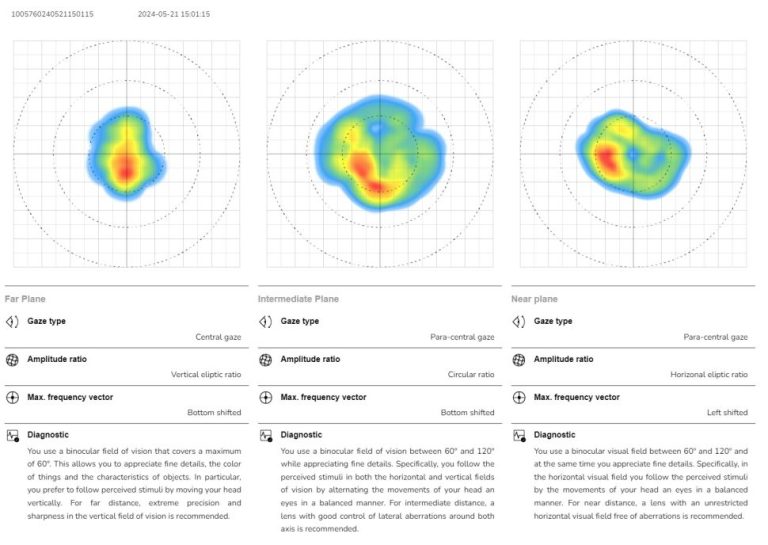

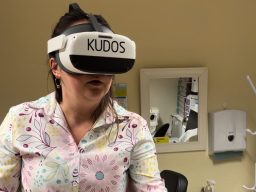


VR technology and
our consultations
07/10/2024
Virtually unique
At Performing Arts Vision Care, we use KUDOS, a cutting-edge new VR technology, to help us design your custom lenses. We are proud to provide our valued clients with this cutting-edge technology.
For the first time, we can see how a performer sees the world, including during rehearsals and on stage. If you require a completely personalised approach, we can customise a lens solution to meet your specific requirements. KUDOS allows us to create custom lenses by tracking your head and eye movements in virtual reality (VR) and visualising the results on a heat map. We then tailor a lens design to your gaze dynamics using the heat map generated.

Performing Arts Vision Care at Home
11/09/2024
Imagine this: No more arduous journeys to our practice. Instead, our expert opticians come to you! Next time you're struggling to see your sheet music, the conductor, and your instrument simultaneously, why not opt for a home consultation?

The performing artist and AMD
An age-related condition, Macular Degeneration (AMD) is a progressive eye disease that can have an immense impact on the lives and professional pursuits of performing artists, especially musicians. As the disease advances, it changes through distinct stages, each presenting its own set of difficulties. During the initial phases, drusen, which are small yellow deposits, become visible in the macula, which is responsible for clear central vision. As the disease advances, the presence of permeable blood vessels leads to the development of blind spots and distortions in vision, which are commonly referred to as wet AMD. This can greatly impede musicians' capacity to decipher sheet music or perceive instrument keys or strings with clarity, thereby rendering their craft arduous.
25/08/2024
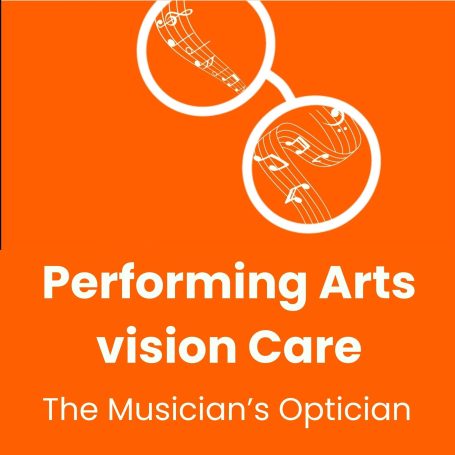
©Copyright. All rights reserved.
We need your consent to load the translations
We use a third-party service to translate the website content that may collect data about your activity. Please review the details in the privacy policy and accept the service to view the translations.
